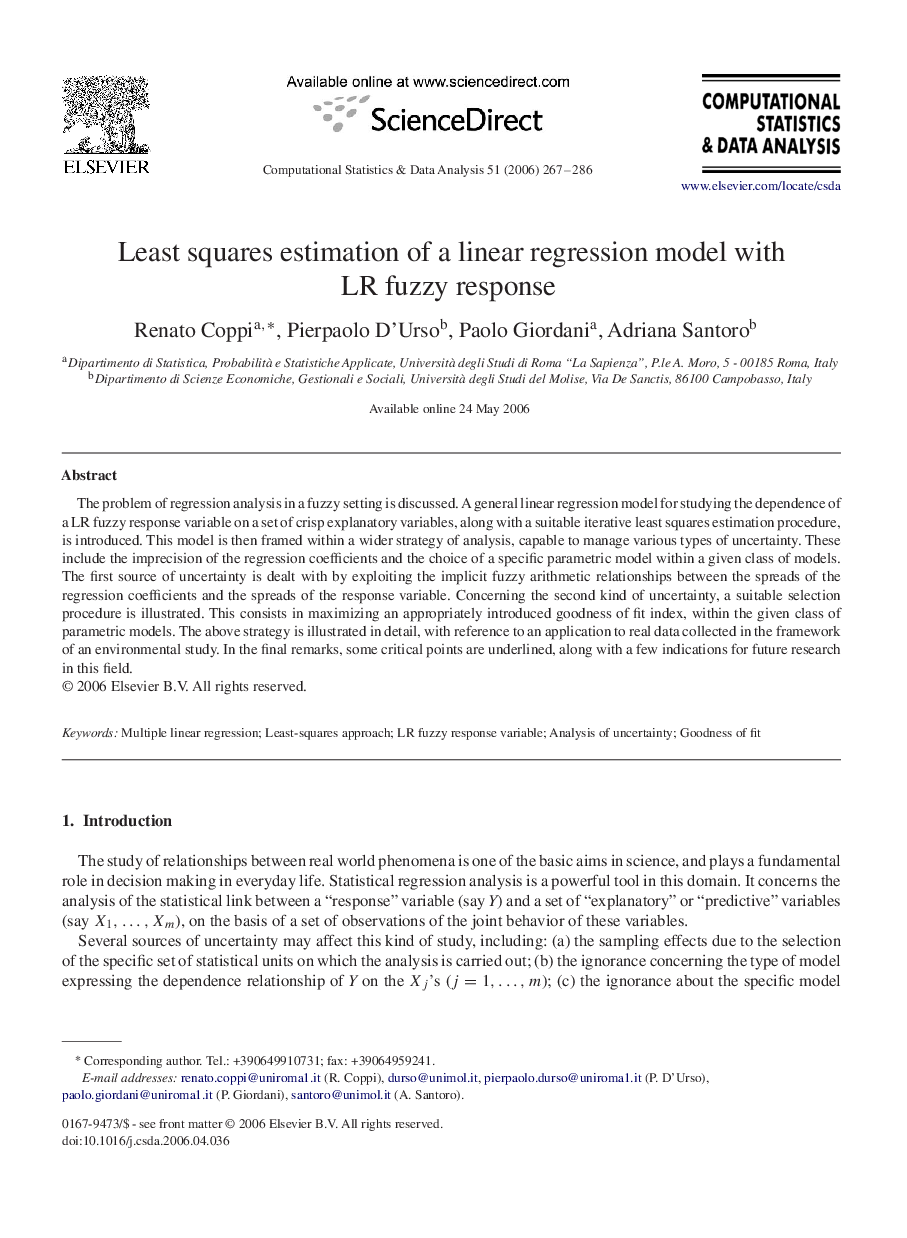| Article ID | Journal | Published Year | Pages | File Type |
|---|---|---|---|---|
| 416810 | Computational Statistics & Data Analysis | 2006 | 20 Pages |
The problem of regression analysis in a fuzzy setting is discussed. A general linear regression model for studying the dependence of a LR fuzzy response variable on a set of crisp explanatory variables, along with a suitable iterative least squares estimation procedure, is introduced. This model is then framed within a wider strategy of analysis, capable to manage various types of uncertainty. These include the imprecision of the regression coefficients and the choice of a specific parametric model within a given class of models. The first source of uncertainty is dealt with by exploiting the implicit fuzzy arithmetic relationships between the spreads of the regression coefficients and the spreads of the response variable. Concerning the second kind of uncertainty, a suitable selection procedure is illustrated. This consists in maximizing an appropriately introduced goodness of fit index, within the given class of parametric models. The above strategy is illustrated in detail, with reference to an application to real data collected in the framework of an environmental study. In the final remarks, some critical points are underlined, along with a few indications for future research in this field.
